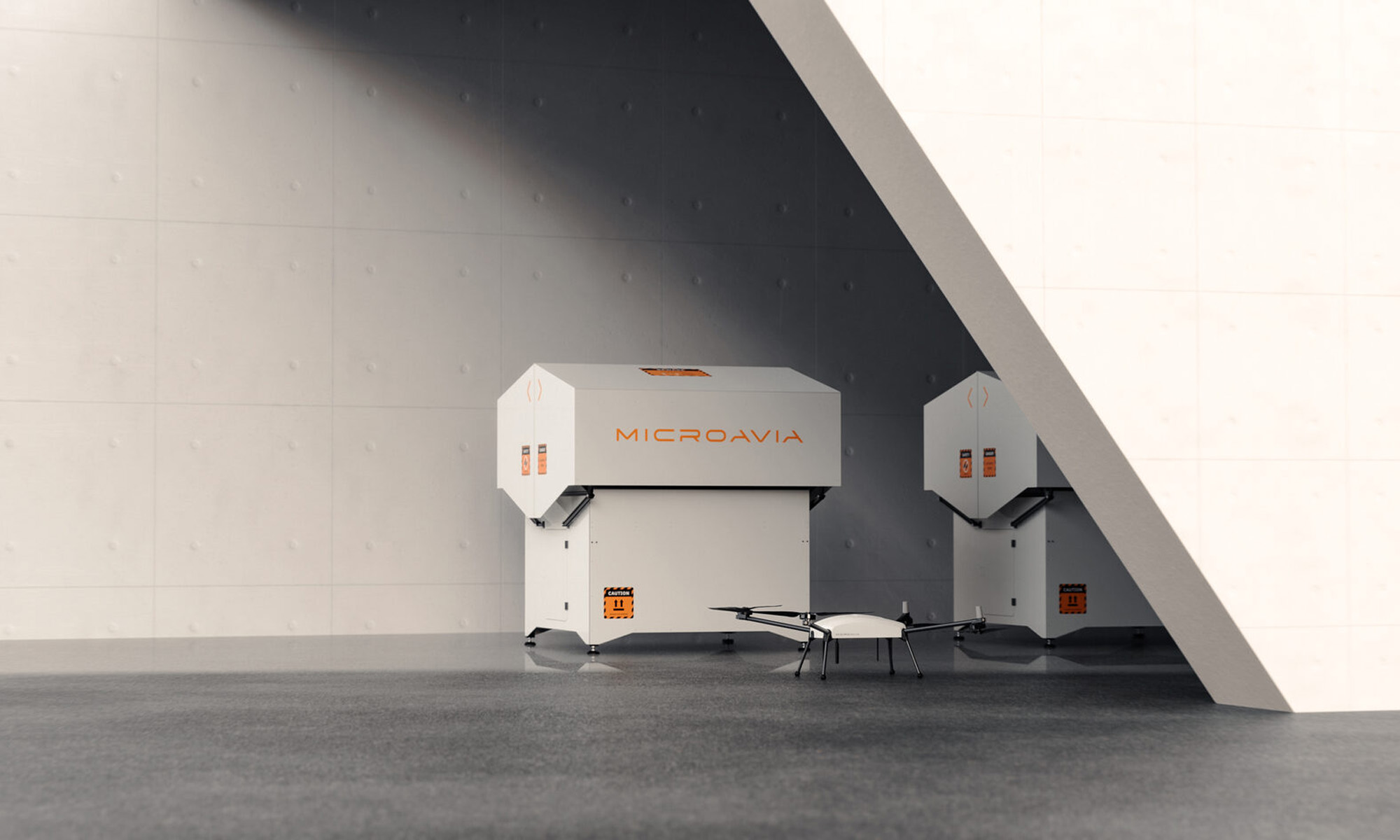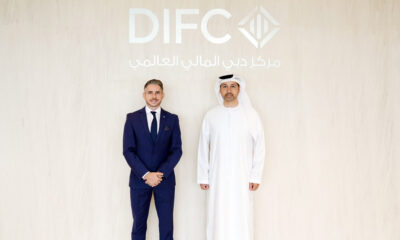News
Dubai Survey Drones Explore Minerals In Central Asia
The UAVs reduce costs and boost efficiency by replacing helicopters and large teams of researchers and geophysicists.

Microavia, a UAE-based company established in Dubai in 2022, delivers drone-based solutions for security, monitoring, and surveying.
Now, the company is helping geologists and researchers explore mineral deposits in Central Asia and Kazakhstan. Microavia’s advanced aerial surveying platform, Fortis, provides detailed information about an area’s geological structure, reducing task times by half and drastically cutting costs.
“We have successfully concluded all preflight tests with Microavia Fortis. A special feature of their geodrone is their ability to stay in the air for up to 60 minutes. The drone can carry up to 12 kg of payload. [and has] shown high efficiency in conducting aeromagnetic surveys due to the stability of the flight direction even in strong winds and long flight time,” explained Kirill Bazhin, CEO of Geodevice Kazakhstan.
Microavia drones hover at low altitudes between 40 and 100 meters, scanning the ground in 400-meter-wide sections. Hundreds of miles of land can be surveyed in days instead of weeks or months, and mineral exploration missions can now be undertaken in previously inaccessible areas.
“Big thanks to Microavia for supplying us with their drones for Terra Exploration. The 45-minute flight time with the magnetometer is quite impressive! Moreover, their team provided us with a beneficial and enjoyable pilot course. I can’t wait to start using these drones in our work,” said Nikita Shaliuto, geophysicist of Terra Exploration.
Also Read: The Middle East Is Rapidly Becoming An eSports Hub
According to recent reports, aluminum, copper, gold, and lithium deposits fall short of anticipated demand. Central Asia, and especially Kazakhstan, has a vast unexplored reserve of minerals, and drone-based exploration can help speed up their extraction.
Microavia’s export of advanced UAVs is also bolstering efforts by the UAE to diversify its industrial sector from traditional oil, petroleum, and gas production.
News
Alienware Just Announced Six New Gaming Monitors
The new models include three QD-OLED and three budget-friendly QHD options, expanding the company’s lineup for all gamers.

Alienware has just updated its gaming monitor lineup with six new additions, including the highly anticipated Alienware 27 4K QD-OLED Monitor. The latest wave of releases is set to reach more gamers than ever, offering high-end QD-OLED displays alongside more budget-friendly options.
The latest displays clearly show that the company is doubling down on QD-OLED with three new models sporting the technology. A redesigned Alienware 34 Ultra-Wide QD-OLED Monitor is also making a return, further refining what is already a fan-favorite display.
A Unified Design: The AW30 Aesthetic
All six monitors feature Alienware’s new AW30 design language, first introduced at CES. The AW30 aesthetic brings a futuristic, minimalist look that unites the entire lineup under a cohesive visual identity.
Pushing QD-OLED Even Further
The refreshed Alienware 34 Ultra-Wide QD-OLED Monitor (AW3425DW) builds on its predecessor’s success with a 240Hz refresh rate (up from 175Hz) and HDMI 2.1 FRL support. It also gains G-SYNC Compatible certification alongside AMD FreeSync Premium Pro and VESA AdaptiveSync, ensuring ultra-smooth performance. With a WQHD (3440×1440) resolution and an 1800R curve, this display enhances immersion for both gaming and cinematic experiences.
For those who crave speed, the Alienware 27 280Hz QD-OLED Monitor (AW2725D) pairs a high refresh rate with QHD resolution, balancing sharp visuals with ultra-smooth gameplay. Meanwhile, the Alienware 27 4K QD-OLED Monitor (AW2725Q) delivers stunning clarity with an industry-leading pixel density of 166 PPI, making it the sharpest OLED or QD-OLED monitor available.
Also Read: Infinite Reality Acquires Napster In $207 Million Deal
Worried about OLED burn-in? Alienware’s entire QD-OLED lineup comes with a three-year limited warranty covering burn-in concerns, offering peace of mind for gamers investing in these high-end displays.
Bringing QHD To A Wider Audience
Alongside QD-OLED, Alienware is also releasing three new QHD gaming monitors aimed at more price-conscious gamers. The Alienware 34 Gaming Monitor (AW3425DWM), Alienware 32 Gaming Monitor (AW3225DM), and Alienware 27 Gaming Monitor (AW2725DM) provide a range of sizes and formats to suit different preferences:
- The Alienware 34 Gaming Monitor (AW3425DWM): An ultrawide (WQHD) option for a panoramic, immersive experience.
- The Alienware 32 Gaming Monitor (AW3225DM): A standard 16:9 panel for a traditional but expansive desktop setup.
- The Alienware 27 Gaming Monitor (AW2725DM): A 27” display offering the same performance in a more compact form factor.
All three gaming monitors feature a fast 180 Hz refresh rate, a 1ms gray-to-gray response time, and support for NVIDIA G-SYNC, AMD FreeSync, and VESA AdaptiveSync to eliminate screen tearing. Additionally, with 95% DCI-P3 color coverage and VESA DisplayHDR400 certification, these displays deliver vibrant colors and high dynamic range for lifelike visuals.



























